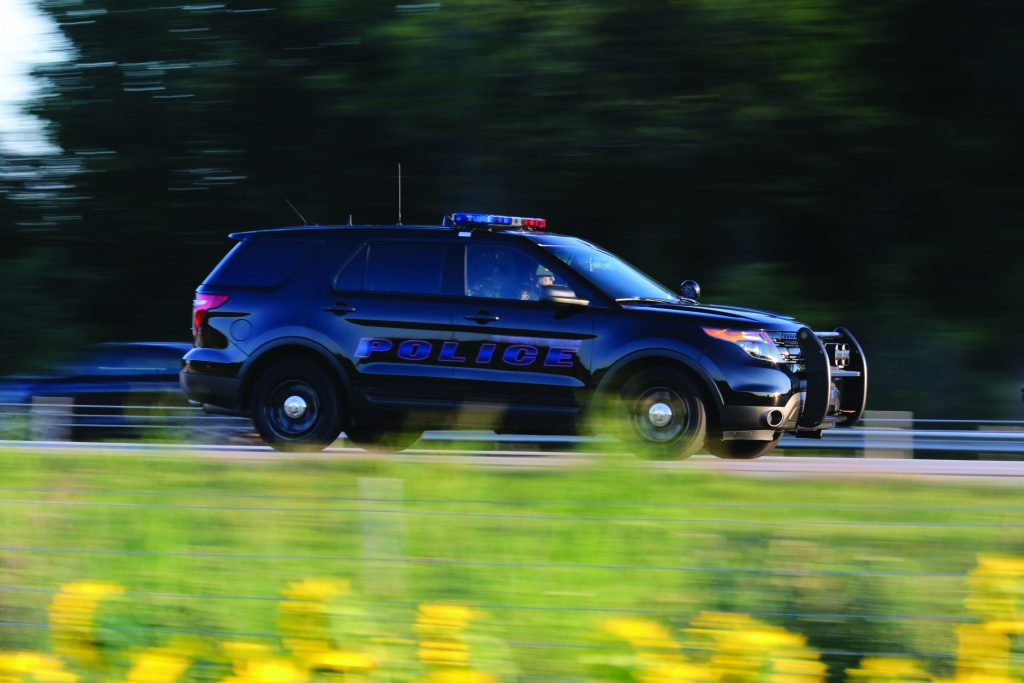 The IACP, with the support of the Department of Justice, Office on Violence Against Women (OVW), and in collaboration with numerous subject matter experts, has developed the Enhancing Rural Law Enforcement Response to Violence Against Women training program.
The IACP, with the support of the Department of Justice, Office on Violence Against Women (OVW), and in collaboration with numerous subject matter experts, has developed the Enhancing Rural Law Enforcement Response to Violence Against Women training program.
Each training event will provide information and strategies to participants that strengthen law enforcement and dispatch/telecommunicator response to violence against women, including domestic violence, sexual assault, stalking, and strangulation. Throughout 2020, the IACP and a multidisciplinary team will conduct four two-day regional training events across the United States.
Although rural areas are often equated with open space, tranquility, and a strong sense of community and family values, these communities may face significant economic, geographic, and service provision barriers that make it difficult to create, strengthen, or expand victim assistance services.1 Though most studies on the occurrence of domestic violence and sexual assault focus on and present realities of urban patterns of these crimes, the occurrence of domestic violence, sexual assault, and stalking in rural areas is as prevalent, if not, according to some research, more prevalent than in urban populations.2 Historically, rural communities have experienced low rates of economic growth and high rates of unemployment and underemployment, all of which can contribute to an increase in crime.3 In urban areas, many of these conditions can be addressed through various programs and available services, but rural communities often lack similar services, including those to support sexual and domestic violence victims.4 Because of the lack of services, law enforcement often bears the burden of filling in these gaps.
There are numerous barriers and challenges that may impact the ability of law enforcement to effectively respond to domestic violence, sexual assault, stalking, and strangulation in rural communities. Responding agencies may have limited personnel, may be required to patrol expansive geographic areas, and lack the needed victim support resources. Rural settings may impact the length of time it takes for law enforcement response, lack availability of and access to telephones, and have limited emergency services. Additionally, rural law enforcement agencies may have limited access to up-to-date training, making it difficult to remain current on the most recent promising practices for responding to and investigating these complex crimes.
Due to these distinct complexities, the Enhancing Rural Law Enforcement Response to Violence Against Women training events aim to provide rural law enforcement the needed information to strengthen agency response to and investigation of these crimes; identify effective methods and strategies to increase the safety of victims, officers, and communities; and hold offenders accountable. The training content includes details about
- the influence of societal myths and stereotypes;
- predominant aggressor determination;
- enforcement of protective orders;
- firearm seizures;
- the neurobiological impact of trauma;
- understanding perpetrator behavior; and
- conducting effective investigations, among other topics.
The IACP will engage a cadre of multidisciplinary subject matter experts to present the training content. Upon completion of the two-day Enhancing Rural Law Enforcement Response to Violence Against Women training event, law enforcement officers and dispatch/telecommunications professionals will be able to
- illustrate the interconnected nature of domestic violence, sexual assault, stalking, and strangulation;
- articulate common frustrations when responding to these crimes and how a thorough, comprehensive response may alleviate these challenges;
- identify promising practices to address the complexities of rural policing when responding to these crimes and present a range of practices to strengthen efforts to address these crimes; and
- explain how partnerships and collaborations can enhance and improve response to these crimes.
For more information about the locations and dates, go to https://bit.ly/30K8397. To connect with staff working on the IACP victim services initiatives, please email stopviolence@theiacp.org.🛡
Notes:
1 Office for Victims of Crime, “Rural Community Dynamics.”
2 Jennifer B. Averill, Ann O. Padilla, and Paul T. Clements, “Frightened in Isolation: Unique Considerations for Research of Sexual Assault and Interpersonal Violence in Rural Areas,” Journal of Forensic Nursing 3, no. 1 (March 2007): 42–46.; Matthew J. Breiding, Jessica S. Ziembroski, Michele C. Black, “Prevalence of Rural Intimate Partner Violence in 16 US States,” Journal of Rural Health 25, no. 3 (Summer 2009): 240–246.
3 Glen Kercher, Samuel Swindell, Ilhong Yun, “Victim Services Delivery: A Comparison of Rural and Urban Communities,” Southwest Journal of Criminal Justice 6, no. 2 (2009): 145–162.
4 Office for Victims of Crime, “Rural Community Dynamics”; Rural Health Information Hub, “Violence and Abuse in Rural America.”
Please cite as
Michael Rizzo, “Enhancing Rural Law Enforcement Response to Violence Against Women,” IACP@Work, Police Chief 87, no. 3 (March 2020): 72–73.


